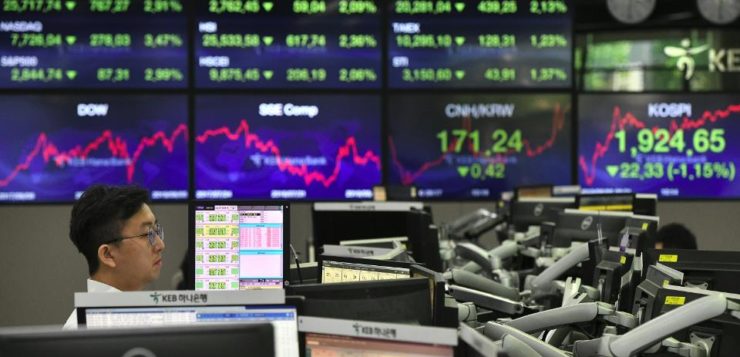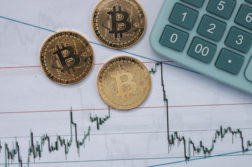Another day, more volatility. But I’m not referring to the choppiness in broader equity markets. Instead, I’m thinking of the wild price swings in cryptocurrencies, such as Bitcoin. Market participants highlight that in the cryptocurrency world, prices rise fast and fortunes are created seemingly overnight. But there is always the other side of the coin (no pun intended), where crashes are sudden and severe.
That’s why I think average retail investors who plan long-term for comfortable retirements will be better off investing in stable FTSE 100 and FTSE 250 companies, rather than buying into Bitcoin for an adrenaline rush.
Where the Bitcoin price is now
If you are following the price of Bitcoin, the world’s most popular cryptocurrency, you may agree with me when I say uncertainty is the only constant.
For example, in 2017, the price soared from under $1,000 to nearly $20,000. But it then fell below $7,000. By November 2018, it was below $4,000. Then in June 2019, Bitcoin was over $10,000.
But in early January 2020, Bitcoin was back around $7,000. As broader stock markets began falling in February, Bitcoin hovered around $9,000. By mid-March, it dropped to the $5,000 level. On 3 July, as I write, it is hovering at $9,100.
Despite the increase in prices in recent years, there are simply not enough merchants using cryptocurrencies yet. In 2019, about $4 billion in bitcoin transactions was sent through payment processors. On the other hand, according to Nilson Report, “Purchase transactions on global general purpose card brands totaled 440.99 billion in 2019, up 19.4% over the previous year“.
So wild price swings and high speculation are combined with a lack of global transaction demand. Clearly, investing hard-earned cash (that you want to grow for retirement years) in Bitcoin is not for everyone.
Blockchain technology is important
But there’s a way to have the best of both worlds through buying blockchain-relevant shares. Cryptocurrencies are based on blockchain technology, which can be described as a digital ledger, acting as a spreadsheet.
In the future, blockchain applications are likely to impact agriculture, asset management, insurance, healthcare, retail, and supply chain management, to name a few areas.
For retail investors, companies that work with blockchain technology may be appropriate businesses to do due diligence on. Their shares may potentially be worthy additions to long-term portfolios.
Which FTSE companies would I consider? Several big pharma giants, such as AstraZeneca and GlaxoSmithKline, have collaborated to promote and cut the cost of drug discovery through increased use of blockchains.
Grocery stores and food manufacturers, such as Sainsbury‘s and Unilever, are looking at how blockchain could help them keep track of food in the supply chain.
Energy giants, including BP, Centrica, and Royal Dutch Shell, are exploring how blockchain technology can be used in the energy sector.
Some global banks, including HSBC Holdings, Lloyds, and Santander, are researching the potential use of blockchain-based banking solutions.
Investing in FTSE 100 shares
In the coming years, I expect many FTSE 100 and FTSE 250 companies to embrace ‘blockchain’ technology. And I’d rather invest in these established global companies with robust businesses and stable cash flows. A good number of them also pay juicy dividends.
Author: Tezcan Gecgil, PhD







